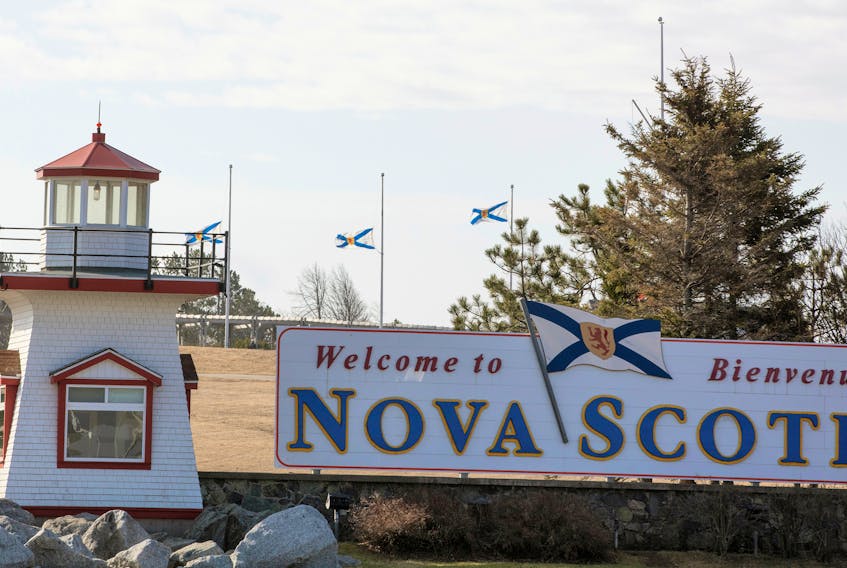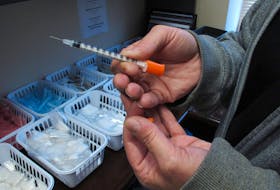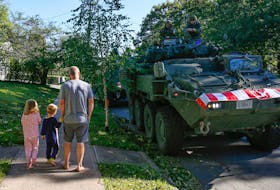I was walking along a street in small town Nova Scotia, pushing a baby stroller years ago, when a car began to slow down beside me. And eventually it came to a stop.
“Who ya wit?” a voice called out from the passenger’s seat.
Initially, I didn’t understand the question and had some difficulty with the accent.
Who was I with? My infant son was in the stroller. That’s who I was with. But that wasn’t really the question.
The questions were, who are you and what were you doing here?
I pointed down the street to where my in-laws lived. I told them my wife’s name. That got me a nod and a smile of acceptance. And then the car drove away, honking the horn, welcome to town.
In small town Nova Scotia, they don’t honk horns for road rage. They honk to say hello or goodbye.
I walked down Acadia Street to the local drug store, where the first question came from the man behind the counter. It wasn’t “Can I help you?” It was a rather blunt: “Who r you?,” he asked, having never seen me before.
I told him who my wife was. I told him who the in-laws were. That was my passport for approval.
Everywhere I went somebody wanted to talk to me. Talking is a big part of life in small town Nova Scotia. Talking, laughing, telling stories, singing.
I grew up in Toronto where strangers never want to talk to you, let alone look at you, let along stop their cars for anything but directions or to sell you a stereo. At the grocery store that day in Nova Scotia, it was the same small-town drill. You can’t just buy a cucumber. You have to explain who you are, what you’re doing there, what brought you here, and all in a friendly kind of way.
When I was checking out, one of the managers walked by and we went through the same questions. I told the man who my wife was. And he just started giggling. “Sheee-la,” he said rather slowly and loudly. “We love Sheee-la.”
And then he added this, a kind of local humour, kind of. “You better not beat her, b’y. If you beat her, we’re coming after ya.” And then he howled some more as I paid the bill.
I started thinking about this and more when the dreadful, heartbreaking, forever shocking news began to filter out on Sunday, about the shootings and the fires and the 19-people dead, beginning in Portapique N.S., of all places, population 100 in the winter, 250 in the summer: the largest mass shooting in Canadian history.
This can’t be Nova Scotia. This can’t be our Canada. This doesn’t seem possible. This is more dead people than Columbine. This is more dead than the Parkland shooting in Florida. This is more than the Ecole Polytechnique shooting that we’ve been talking about and mourning for 31 years.
How is this possible in small town Nova Scotia, where everybody wants to know your name, where everybody knows just about everybody and if they don’t, they know someone who does. They’re not being rude when they’re asking where you’re from, they’re being friendly in their own local way. They want to know who you are and what you’re doing here and they want to talk — boy do they want to talk — in a place where they don’t lock their front doors because they don’t have to.
And now, what? What happens in tiny places like Portapique and in larger towns along the highway? Of the 100 or so people in Portapique, how many would be connected to one of the victims? How many would know them from the community, from the schools, from the doctor’s offices, from the kind of places we all go to every day. And how do they mourn now when social distancing remains the order of the day? How do the people come together to begin to get on with their lives.
In small town Nova Scotia, your neighbour isn’t just the person living to your left or to your right. Your neighbour is the whole town. And the next town. And sometimes the town after that one.
And now some of your neighbours are gone and life in this most precious of Canadian places may never be the same.
ssimmons@postmedia.com
twitter.com/simmonssteve
Copyright Postmedia Network Inc., 2020









